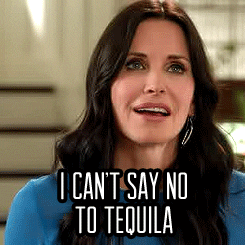- The Daily Tonic
- Posts
- Dietary advice with a side of corruption.
Dietary advice with a side of corruption.
Plus: How some people lose weight and keep it off.
DEEP DIVE
Can You Say, “Conflict Of Interest?”
The National Academies of Sciences, Engineering, and Medicine—the diet panel responsible for updating federal dietary guidelines—is facing scrutiny over its committee member selections because, well, take a guess.
I’ll give you a hint—if you follow the money, things get sketchy (READ THE ARTICLE).
Recently, four new members were added to the panel, including a Harvard professor with financial links to the alcohol industry. Tsk Tsk. And the cherry on top? This follows the removal of two Harvard scientists with similar conflicts, raising concerns about impartiality in setting dietary guidelines that impact Americans' health. After all, if alcohol companies are paying these professors, aren't they less likely to make impartial recommendations about alcoholic consumption?
Maybe? Maybe not?
To be clear, this committee has a significant influence on public health, as it will shape the government's stance on nutrition, including recommendations on alcohol intake. So, it makes sense for red flags to go up when the committee selects members who have previously published research suggesting the benefits of moderate drinking while receiving financial support from the alcohol industry.
The health effects of alcohol remain debated. Heavy drinking's negative impact on health is clear, but the benefits of moderate drinking have come under scrutiny. Studies previously showing cardiovascular benefits are now challenged, especially those funded by the alcohol industry. The more research that comes out, the more apparent it becomes that the only amount of alcohol that is good for health is zero.
Currently, U.S. guidelines suggest limited alcohol consumption—one drink daily for women and two for men (READ MORE). How is that our actual recommendation for “limited” alcohol consumption? That’s 14 drinks a week for men. How is that limiting anything?
The broader problem highlights the complexities of global dietary guidelines influenced by industry-funded research. This situation is not unique to alcohol; we see the same thing pop up time and time again in food and health policy, where industry-funded studies can skew public health advice. Peel back the layers on most food research, and you’ll find all sorts of financial ties to Big Food.
As public comments on the nominations close, the National Academies faces a critical decision. Should they keep their controversial picks for committee seats in place, or do they find someone else who might not be in the alcohol industry's back pocket?
The key takeaway? As the committee prepares to review evidence on a range of health issues linked to alcohol, from obesity to cancer and cognitive health, their conclusions will be something we should all keep a close eye on. Will we get policy influenced by unbiased research, or will we get a group of white coats doing the bidding of big corporations at the expense of our health?
Only time will tell.
